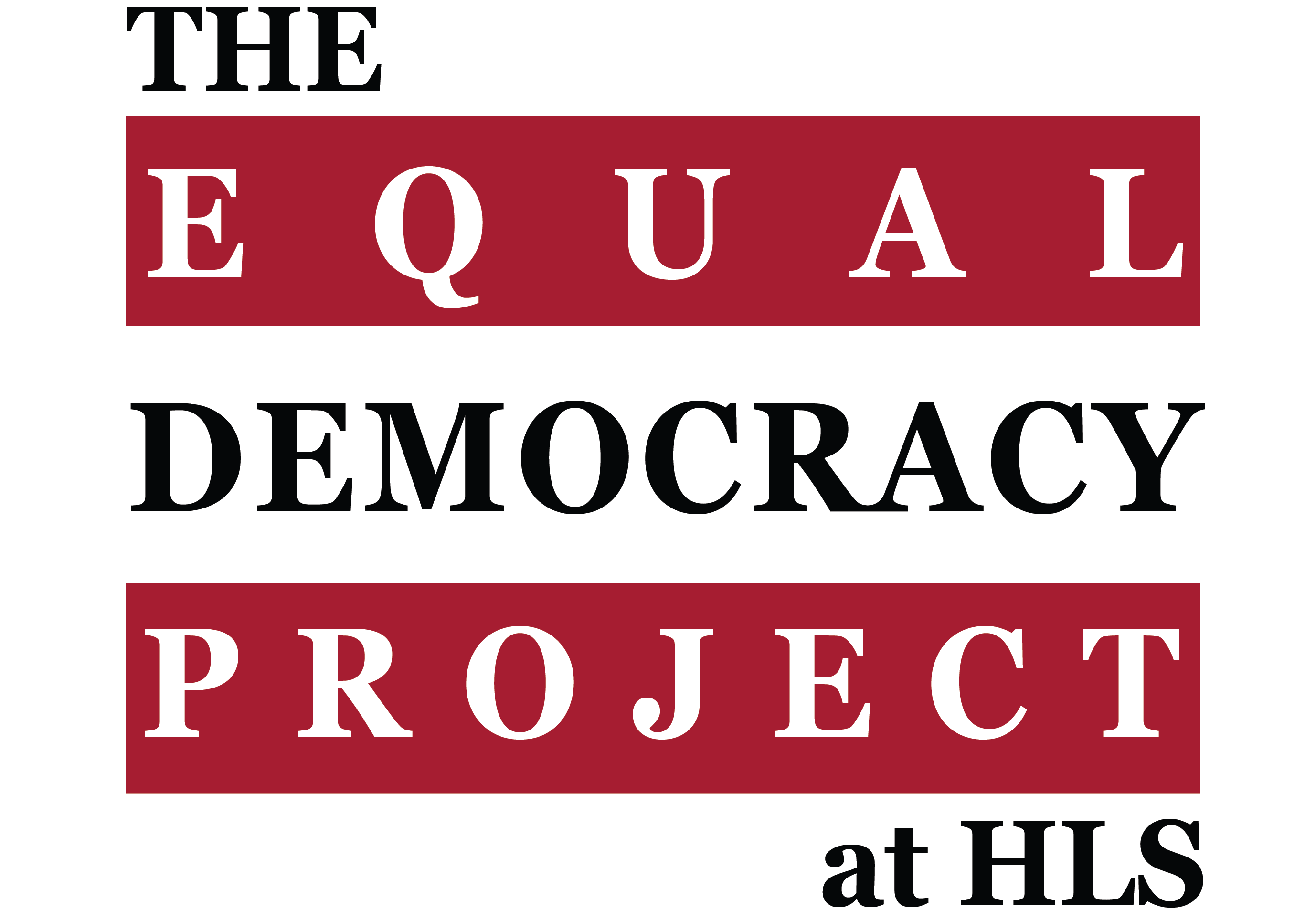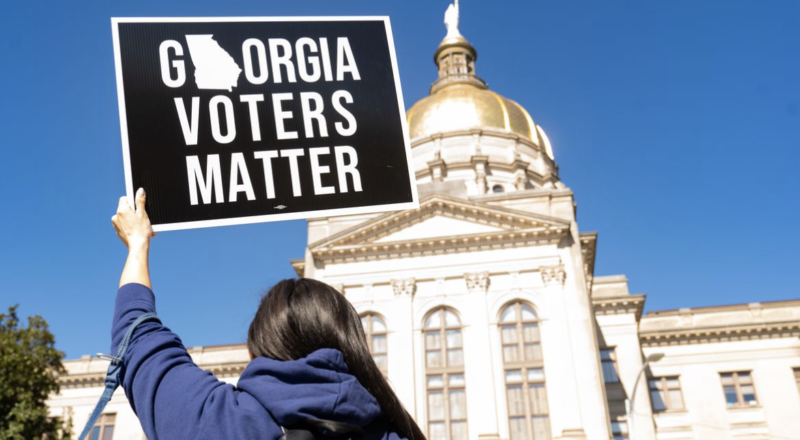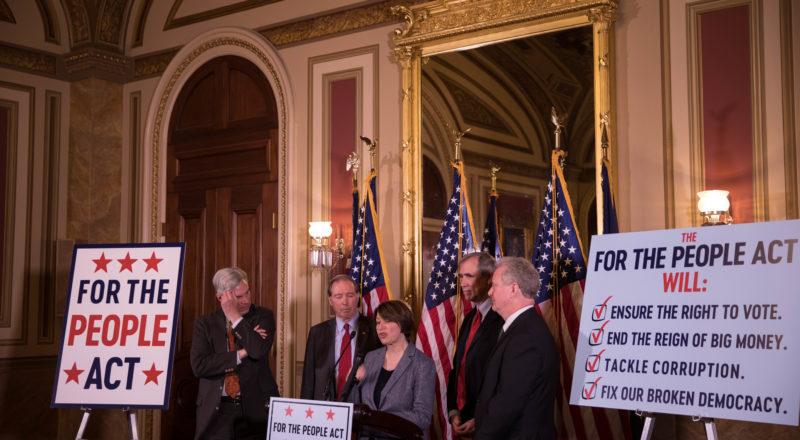By: Mark Haidar ’23 | September 13, 2021
As Benjamin Franklin was exiting the Constitutional Convention in 1787, someone asked him, “Doctor, what have we got? A republic or a monarchy?” Franklin famously responded, “A republic, if you can keep it.”
If you can keep it. That is the critical challenge facing our democratic republic today some 234 years later. The actions of Congress over these next couple of months may well determine whether we are prepared in meeting this challenge.
This year alone, over 400 bills have been introduced in state legislatures nationwide that make it harder to vote, with at least 18 states passing such bills into law. These voter suppression bills, which target the casting of one’s vote, have received significant public attention, and rightfully so — a democracy depends on citizens having access to the ballot, and these bills unnecessarily limit that access.
But there is another, more pernicious campaign that could potentially disenfranchise many more Americans: the campaign for election subversion. All Americans should have confidence that their vote will be counted and election results will be accurately reported. However, that baseline assumption is currently at risk.
Following the 2020 election, we saw brazen attempts at election subversion by various political actors — from former President Trump asking Georgia’s secretary of state to “find 11,780 votes” to change Georgia’s election results, to 17 Republican attorneys general submitting a frivolous brief asking the Supreme Court to overturn election results in four states, to 147 congressional Republicans voting against certifying the election even as a violent mob overtook the Capitol just hours before.
While these attempts to overturn the results of the election may have failed in 2020, we may not be so lucky in 2022 or 2024.
Rather than being exalted for their fidelity to the rule of law, individuals who refused to bow to pressure and undermine the most secure election in American history have either been ousted or stripped of their powers. Georgia’s secretary of state was stripped of voting powers on the State Election Board. A Republican in Michigan who voted to certify the results of the election was replaced by the GOP. Representative Liz Cheney, once the third-ranking member of Republican leadership in the House, was ousted from her post for refusing to support President Trump’s conspiracy theories surrounding the 2020 election only to be replaced by a congresswoman who promoted them.
These individual examples are part of a larger, coordinated effort by partisans to manipulate elections. As of June 2021, Protect Democracy identified 216 bills nationwide that would interfere with election administration. 24 of these bills have been enacted into law.
For instance, one newly enacted bill in Georgia gives the state legislature control of the State Election Board and provides a pathway for it to appoint a single person to take control of typically bipartisan county election boards. Another bill, introduced but not passed, would give the state legislature in Arizona the authority to override the secretary of state’s electoral vote certification and instead allocate electors to their preferred candidate.
As the Senate returns from recess and considers voting rights legislation, it must pass the For the People Act (H.R. 1/S. 1) and the John Lewis Voting Rights Advancement Act (H.R. 4). These bills are crucial to combatting voter suppression — as the former preempts many of the restrictive bills passed by states this year while the latter strengthens existing anti-discrimination laws to prevent restrictive bills from taking effect in the future.
In addition to addressing voter suppression, Congress must also act to address the growing threat of election subversion, including modernizing the Electoral Count Act and passing the Preventing Election Subversion Act. These measures would make it more difficult for partisans to interfere with the integrity of our elections.
Ensuring that every citizen has meaningful access to the ballot and that the will of voters is respected are basic requirements of a democracy. When it comes to safeguarding our democracy, the Senate needs to make protecting the fundamental right to vote its first priority.
Mark Haidar is a Joint JD/MPP Candidate at Harvard Law School and the Harvard Kennedy School of Government. He previously served as President of the Equal Democracy Project from 2019-2021.


